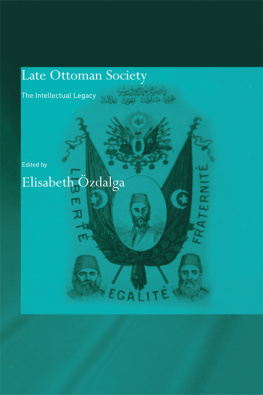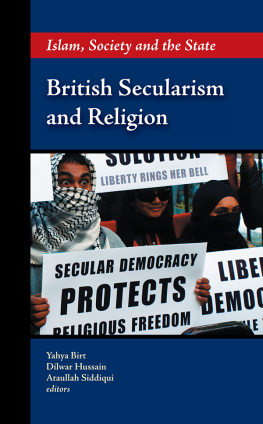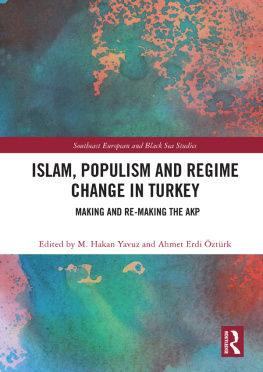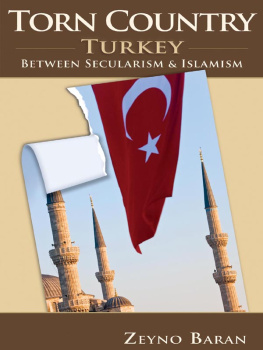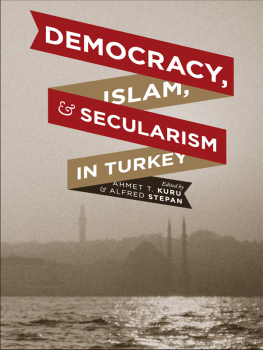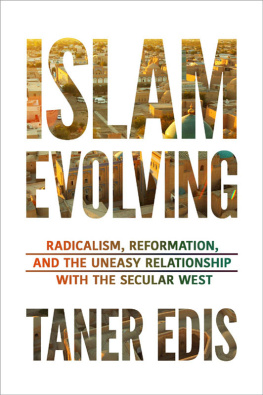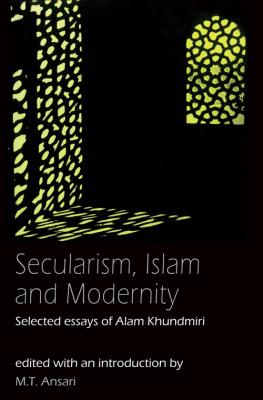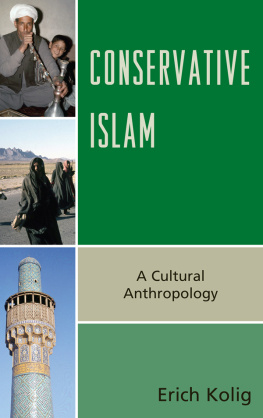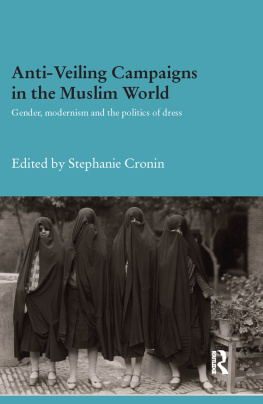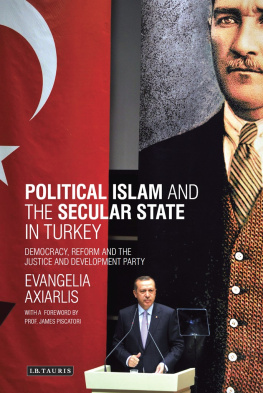NORDIC INSTITUTE OF ASIAN STUDIES
Recent studies of women and Islam
Survival and Profit in Rural Java
The Case of an East Javanese Village
Sven Cederroth
Kinship, Honour and Money in Rural Pakistan
Subsistence Economy and the Effects of International Migration
Alain Lefebvre
Organising Womens Protest
A Study of Political Styles in Two South Indian Activist Groups
Eldrid Mageli
The Islamization of the Law in Pakistan
Rubya Mehdi
Islam and Politics in Afghanistan
Asta Olesen
Managing Marital Disputes in Malaysia
Islamic Mediators and Conflict Resolution in the Syariah Courts
Sharifah Zaleha Syed Hassan and Sven Cederroth
Nordic Institute of Asian Studies
NIAS Report Series, No. 33
First published in 1998
by RoutledgeCurzon
2 Park Square, Milton Park, Abingdon,
Oxon, OX14 4RN
Transferred to Digital Printing 2005
Typesetting by the Nordic Institute of Asian Studies
Copyright 1998 by Elisabeth zdalga
British Library Catalogue in Publication Data
A CIP catalogue record for this book
is available from the British Library
ISBN 0-7007-0983-5
Research leading to the publication of this work
was assisted by a grant from the Swedish Council for Research
in the Humanities and Social Sciences (HSFR, Humanistisk
SamhllsvetenskapligaForskningsradet).
About the author: Elisabeth zdalga is Professor of Sociology
at the Middle East Technical University, Ankara. She is also
affiliated to the Swedish Research Institute in Istanbul.
Cover illustration: detail from a photograph reproduced with the
kind permission of the Daily News, Ankara.
Preface
Turkey is the only country in the Middle East and the whole Muslim world that has practised liberal democracy for a long time. Half a century of democratic rule has not been enough, however, to establish democracy as an unassailable political system. Ever since the transition to a multi-party system at the end of the Second World War, the Turkish experience has been one of recurring crises. Mounting social and political confrontations have occasioned the military to interrupt the democratic process three times: in 1960, 1971 and 1980. The armed forces have never lacked substantial public support for their interventions. As the democratic process has gained strength, however, it has become more and more difficult to defend a military intervention carried out in the name of democracy. This means that solutions to future political crises must rely on the mechanisms offered by the democratic decision-making process itself, without resorting to the short-cuts offered by the military forces.
Awareness of this fact has come at a time when social, economic and political relationships are becoming increasingly complex, and therefore also more difficult to handle. During the last two decades, the rate of migration to the big cities has increased dramatically and Turkey has in a short time turned into an urban mass society.
The same period has also been marked by the rise to power of political Islam. Radical Islamists are often reluctant to subscribe to the values of liberal democracy, owing to the alleged Western origin of this form of government. Therefore an extra element of tension has been added to the present development. The examples of dictatorships carried out in the name of Islam are legion, while examples of the opposite are hard to find. In the light of this historical reality, the present situation in Turkey gains special importance. What is being enacted, especially since the Welfare Party under the leadership of Necmettin Erbakan came to power in June 1996, is nothing less than a large-scale attempt to integrate Islam within the institutions of a modern, liberal democratic polity.
Will the experiment be successful? Considering the accomplishments of the Islamists, the observer may well oscillate between hope and despair. Ever since the Islamists appeared in Turkish politics with a party of their own at the end of the 1960s, it has never been an easy task to decipher their doings. The latest government enactments of the Welfare Party since it assumed office in June 1996 may serve as an example.
Having succeeded in seizing power, the Welfare Party leaders were initially careful to keep a low profile. Confrontation on controversial issues was avoided, and a number of important decisions were taken that did not mark the Islamists out from any of the other mainstream, or centrist parties. Along this line, a defence agreement was re-ratified with Israel during the summer of 1996, in spite of the fact that the Zionists are depicted as the number one imperialistic enemy in the party propaganda. Similarly, the prolongation on Turkish soil of the International Deployment Force controlling northern Iraq was allowed to continue, although the Welfare Party has voted against this force in parliament ever since it was set up at the end of the Gulf War.
The Welfare Party, however, also had to pay attention to an impatient body of opinion that was demanding more radical action. To counter pragmatism in some areas, more spectacular steps were taken in others. As a move in that direction the first state visit was paid to Iran, in spite of the fact that this country is boycotted by the USA for its support of terrorism. That visit was followed by another equally controversial expedition to Libya, which, however, failed in its mission, especially from the point of view of Prime Minister Erbakan himself, since Colonel Gadaffi in a shared press conference had the nerve to criticize the Turkish government on a number of issues, above all its policies vis-vis the Kurds.
The road followed by the Welfare Party has always been marked by zigzags: now pragmatic and reconciliatory, now preposterous and recalcitrant. Still, the wish to stay within the boundaries marked out by a modern democratic regime seem to weigh more heavily than the desire to enter upon too risky undertakings.
There are, however, factors other than the unpredictability of the Welfare Party to consider when evaluating the prospects for democracy in Turkey, such as the unwillingness of other political actors to cooperate and compromise with their adversaries. It is not only the Islamists who fall prey to narrow-minded ideological conceptions; the tendency to let ideological rather than common-sense considerations govern the political positions is more widespread than that. Fanaticism flourishes everywhere and may even be found among the most devoted defenders of democracy and secularism. In fact a vexed tug-of-war is being enacted between the forces of reconciliation on the one hand and the forces of confrontation on the other, which cuts through the conventional ideological rightleft, conservativeliberal, and secularistIslamist boundaries.
In a country as politically unstable as Turkey, it is very hard to make any assessment concerning the inner potential of its political system nor is that the aim of this book. The objective is instead to point at certain events and processes in the countrys recent history, which indirectly may illuminate the character of todays social and political controversies. The aim here is not only to offer a historical and sociological analysis, but to go beyond the surface of official ideologies in yet another sense, and discover what the people involved in these conflicts represent as private individuals. If the finale of this study after all rings out in a major rather than in a minor chord, it is thanks to the openness and flexibility conveyed by the young women who agreed to participate in the interviews. They speak a language alien to the deadlock of political power struggle. Theirs is instead the voice of questioned boundaries, tolerance, responsibility and a desire to be part of an open dialogue.



